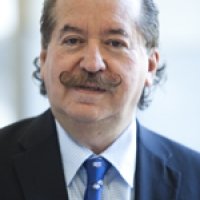Urban Violence: Building Safe and Inclusive Cities in Latin America
Join us for a panel discussion on policy options for building safe and inclusive cities in Latin America based on recent field research conducted in several major urban areas in the region.
Welcoming Remarks:
Cynthia J. Arnson, Director, Latin American Program, Woodrow Wilson Center
Introduction:
Eric Hershberg, Director, Center for Latin American and Latino Studies, American University
Panelists:
Juan Pablo Pérez Sáinz, Latin American Social Sciences Faculty (FLACSO)-Costa Rica
Roberto Briceño-León, Venezuelan Violence Observatory
Hugo Frühling, Center for Citizen Security Studies, University of Chile
Jennifer Salahub, International Development Research Centre
Commentators:
Adriana Beltrán, Washington Office on Latin America
Adam Blackwell, Organization of American States
Moderated by:
Eric L. Olson, Associate Director, Latin American Program, Woodrow Wilson Center
Speakers

Observatorio Venezolano de Violencia
Director of the Institute of Public Affairs at the University of Chile
Hosted By

Latin America Program
The Wilson Center’s prestigious Latin America Program provides non-partisan expertise to a broad community of decision makers in the United States and Latin America on critical policy issues facing the Hemisphere. The Program provides insightful and actionable research for policymakers, private sector leaders, journalists, and public intellectuals in the United States and Latin America. To bridge the gap between scholarship and policy action, it fosters new inquiry, sponsors high-level public and private meetings among multiple stakeholders, and explores policy options to improve outcomes for citizens throughout the Americas. Drawing on the Wilson Center’s strength as the nation’s key non-partisan policy forum, the Program serves as a trusted source of analysis and a vital point of contact between the worlds of scholarship and action. Read more


Urban Sustainability Laboratory
Since 1991, the Urban Sustainability Laboratory has advanced solutions to urban challenges—such as poverty, exclusion, insecurity, and environmental degradation—by promoting evidence-based research to support sustainable, equitable and peaceful cities. Read more
